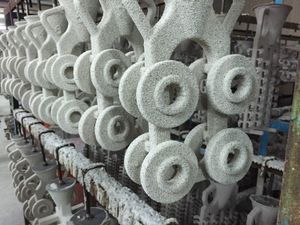Hey everyone - I’m Drew Austin, taking over for Spencer this week. I write about cities and technology in my weekly newsletter, Kneeling Bus; occasionally at greater length on my blog, Kneeling Bus; and today, here. I'm based in NYC and am currently taking a sabbatical after five years on Uber's operations team.
I frequently compare cities to the internet, especially in their recent evolution. Cities have always functioned as the physical engines of human culture and civilization, while a digital layer has emerged more recently, on top of all the others, that intensifies many of the forces already at work in urban settings and often competes with them. Someday sooner than we think, if we haven’t already, we might forget that the two were ever distinct.
As software continues to eat the world (to quote Marc Andreessen), we must refrain from the naive hope that code alone will fix every chronic urban problem, even though it has fixed many quite well. Anyone who rides the New York subway or pays for housing in San Francisco knows that those systems have issues that would benefit from better “hardware” more than just better software (and sometimes the software makes things worse). So let’s work on the hardware too, wherever we find it.
Transportation.
- Using Google Street View to predict voting patterns and neighborhood demographics based on what kinds of cars are parked on the streets.
- Elon Musk's relationship status with mass transit is “it’s complicated” at best. A critique of Musk’s position here from Jarrett Walker (@humantransit) that prompted this terse rebuttal.
- A survey of driving as a massive job category in the United States, and how autonomous vehicles might impact employment.
Dystopia.
- The security robots deployed in San Francisco to monitor and deter homeless encampments. The robots have since been vandalized, covered with tarps, doused in barbecue sauce, and generally “bullied.” Ironically, the robots were commissioned by the SF branch of the Society for the Prevention of Cruelty to Animals.
- The rapid rise of internet-connected devices means that a “tsunami of data” could account for 20 percent of global energy consumption by 2025.
Enclosure of the Internet.
- "After 2014, we started losing the benefits of the internet’s infrastructural and economical diversity.” An account of how Google and Facebook came to have direct influence over more than 70 percent of internet traffic.
- Six reasonable suggestions for how to rein in the tech industry’s monopolistic tendencies and “make tech work for everyone.”
- The political implications of Amazon’s (and other megaplatforms’) increasing dominance, as we shift from “territorial sovereignty” to the “functional sovereignty” they represent.
Artificial Intelligence.
- How it's possible to be friends with a bot (also RIP @horse_ebooks which get a shoutout).
- A manifesto from MIT Media Lab director Joi Ito about designing our future living with machines and the importance of avoiding reductionist thinking in doing so.
- Thanks to memes, machine learning algorithms have learned that hovering text in the Impact font is part of what a cat looks like.
Tangents.
- A brief history of efforts to grow trees in the shape of furniture (“The tree doesn’t necessarily want to grow into a chair”).
- "Remove the legend to become one.” A thoughtful, funny paean to Microsoft Excel and data visualization from Eugene Wei, through the lens of his time at late-‘90s Amazon.
- Lavarand was a hardware random number generator that worked by taking photos of the floating material in lava lamps and extracting data from the patterns.
Thanks as always to our recurring donors for supporting The Prepared.
Love, Drew.
p.s. - If you liked this installment (or even if you didn't) and want to chat further, send me a note. I'd love to grab coffee.
p.p.s - Whenever possible, we work to encourage inclusivity. Here's how.


